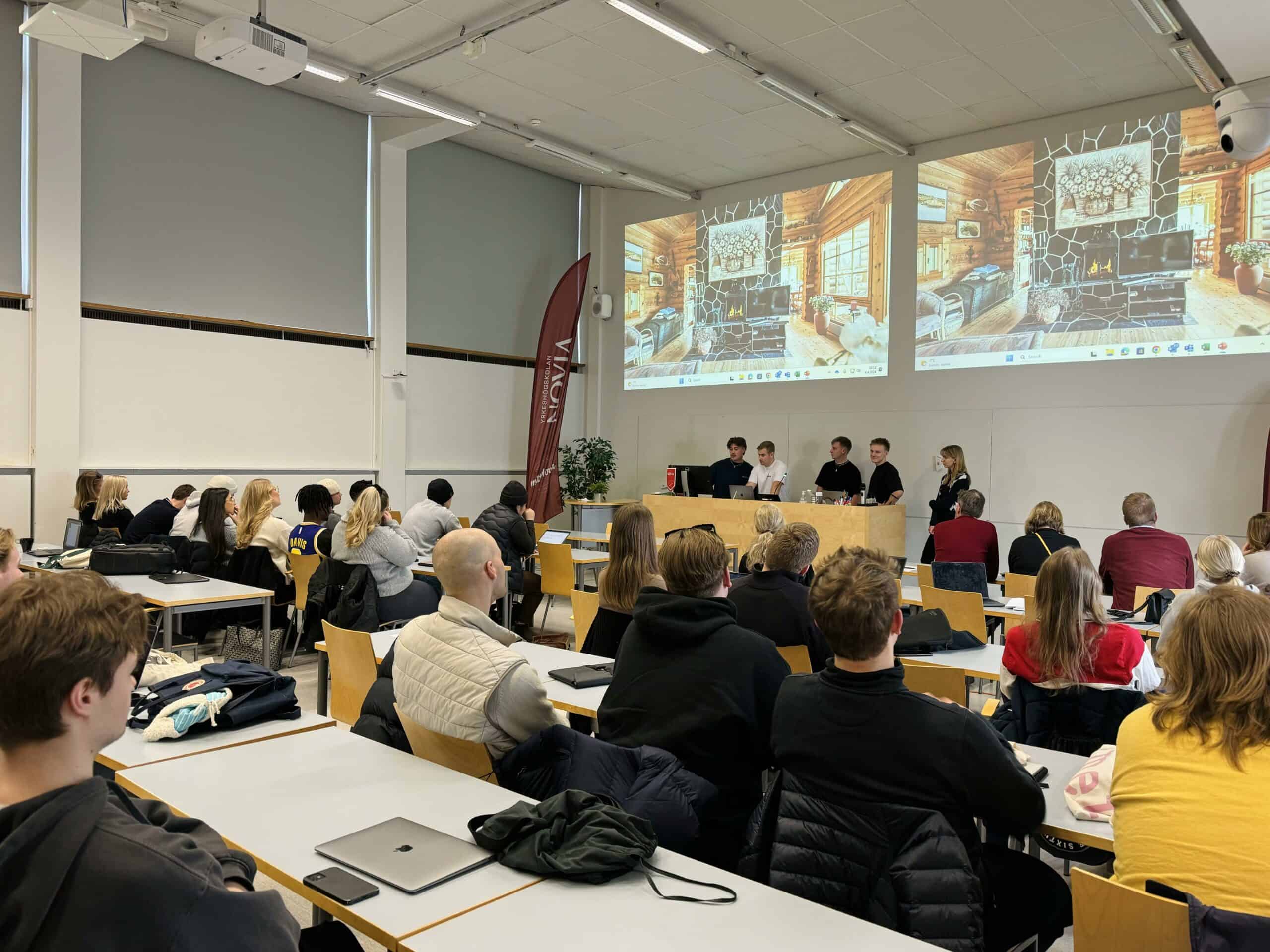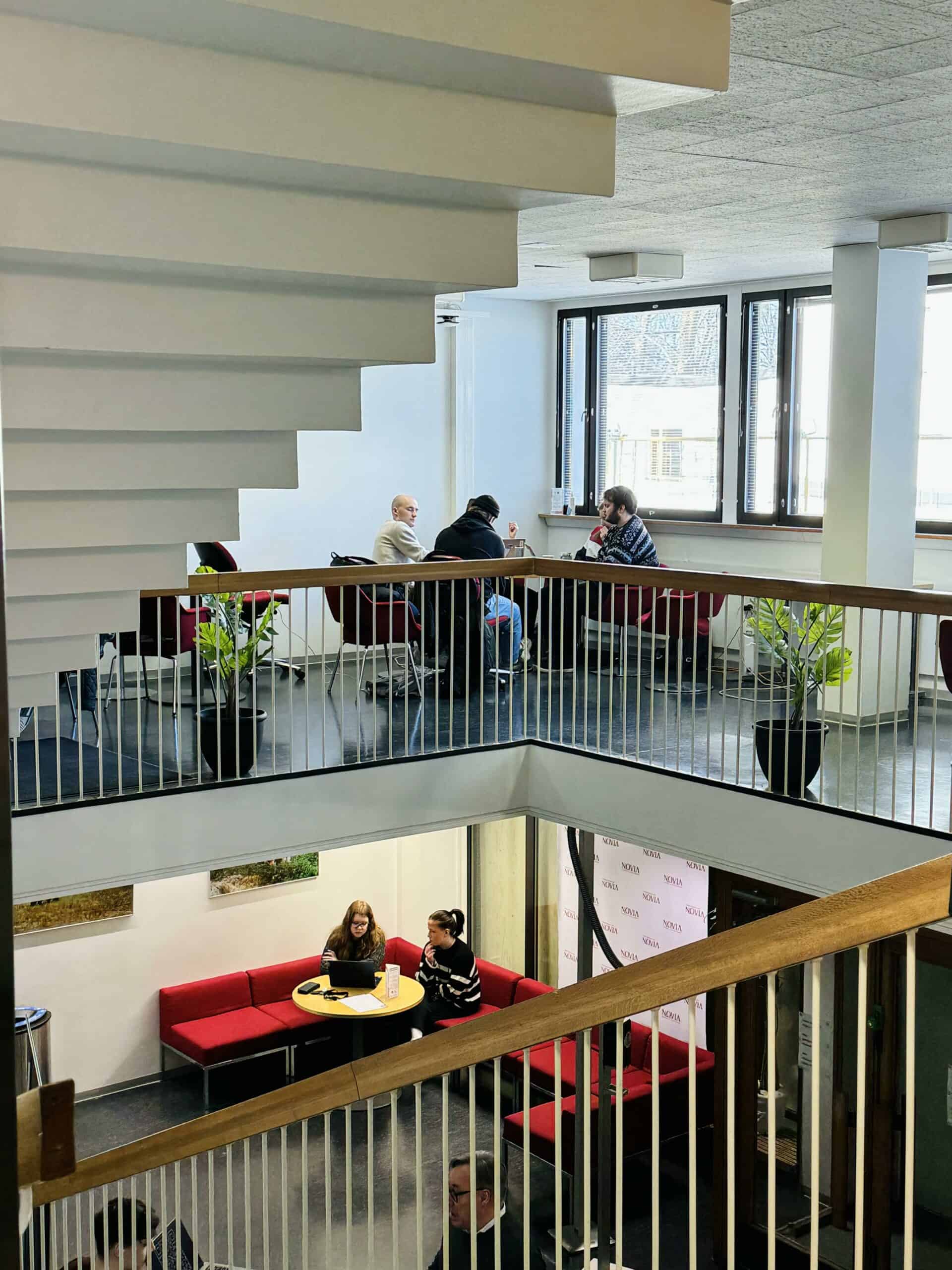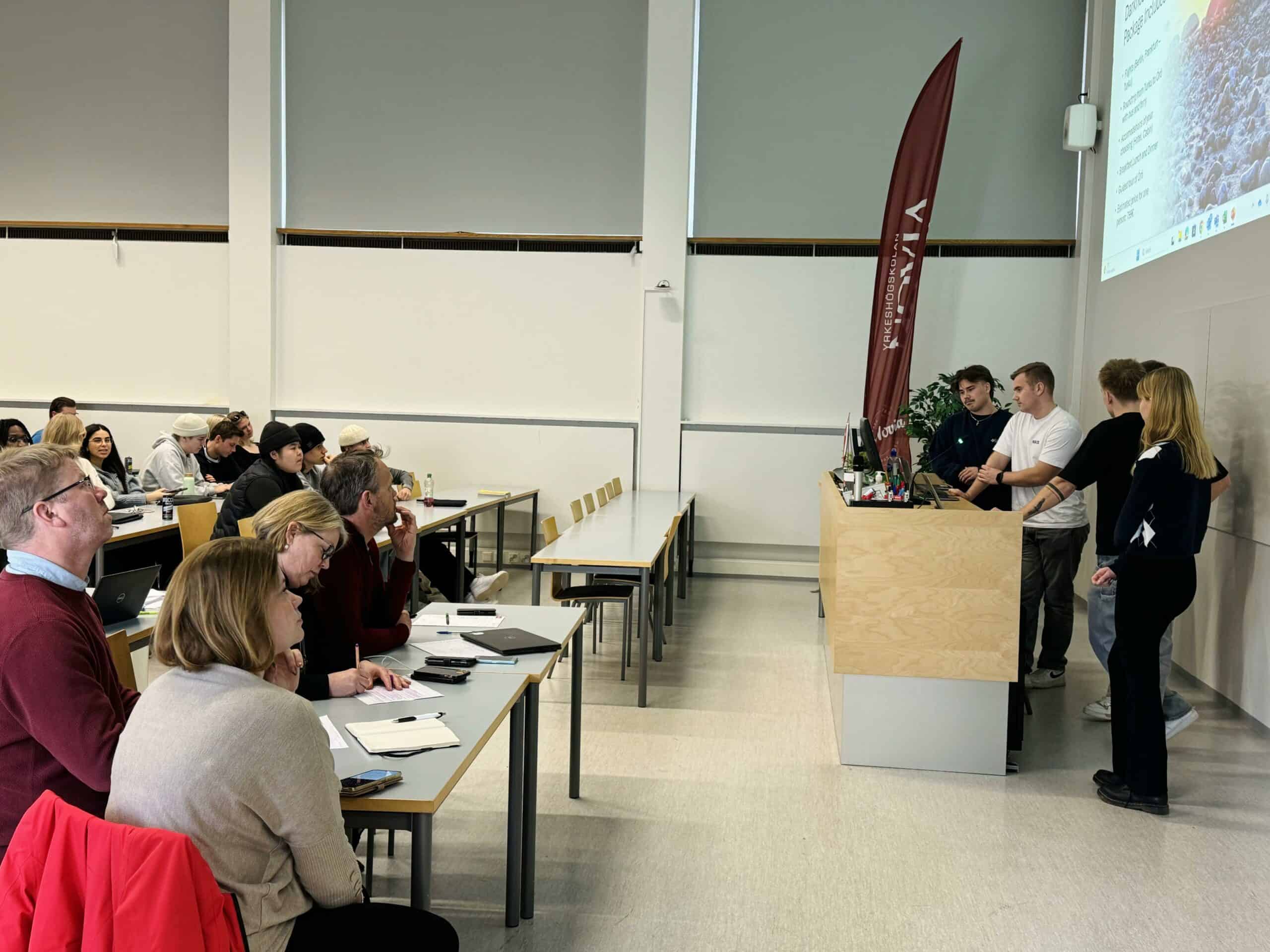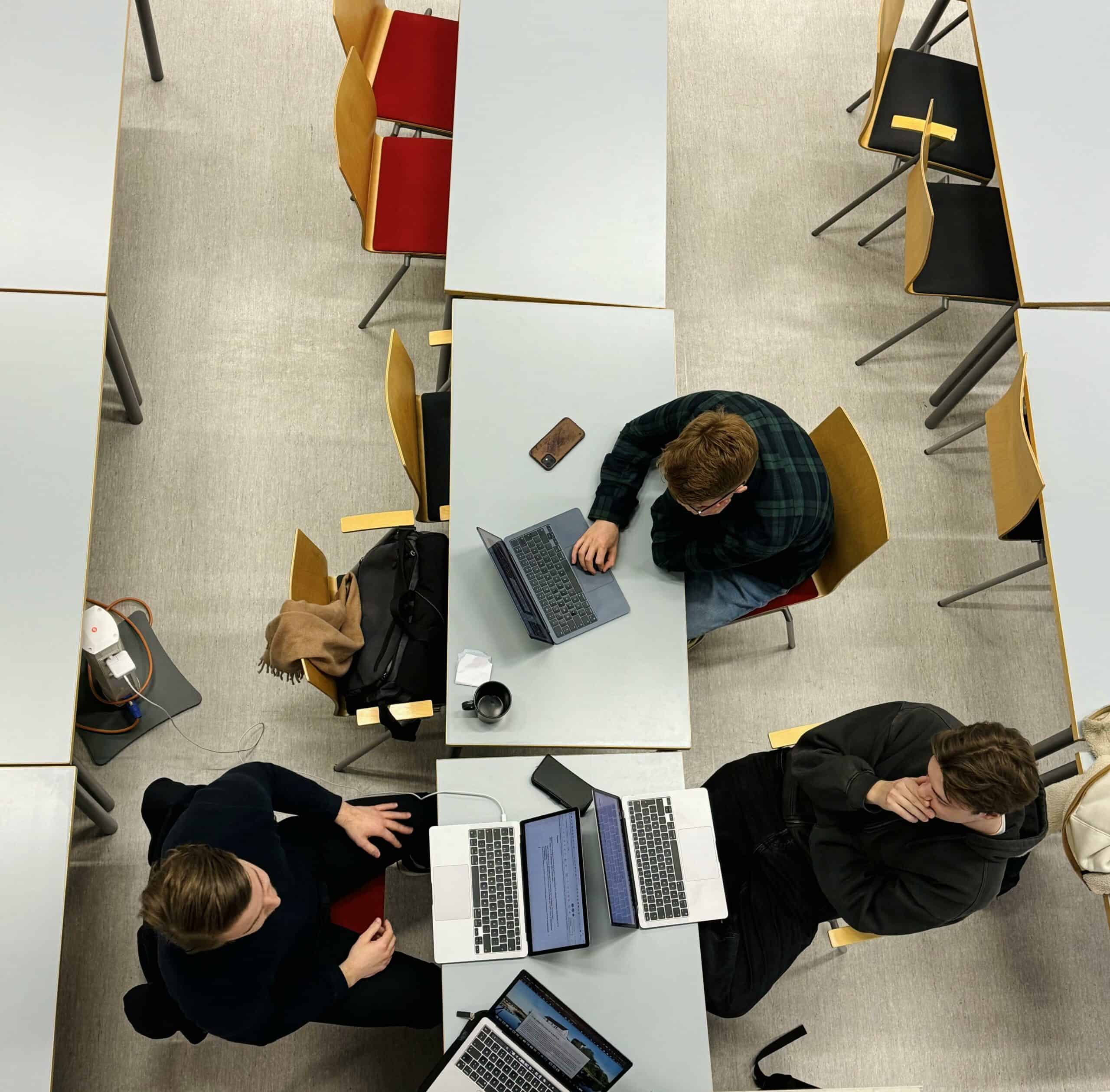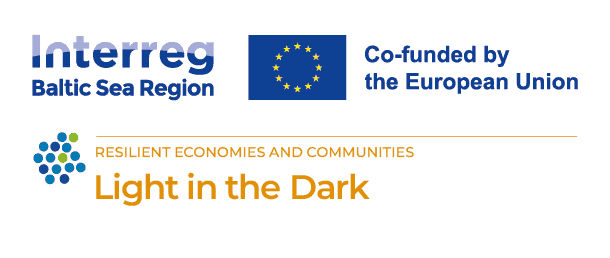
Design Jam
25 April 2024
Exchange students from five European countries and Novia’s 3rd year business studies students were divided into 15 team, totalling 70 students in a one day “Design Jam”. The purpose of the Jam was to design new products suitable for the dark season for two associated partners of Light in the Dark, the island of Örö and Visit Pargas.
The brief was given by the associated partners and by Light in the Dark’s project manager to create a concept for selling darkness to tourists in a destination of their choice in The Archipelago Sea or Åland Islands. The students were to focus their ideas upon the three most relevant Visit Finland traveler segments for the area. The timing was from September to April and the target market could be either the regional market, UK, Germany or France
In service design, the students needed to consider the customer journey as well as the actual product. During the day the groups were encouraged to use a range of design methods including “Looping” with the clients or other tourism companies in the specified area.
At the 5pm deadline all teams gave a five-minute pitch as if at a sales workshop with international travel agents. The jury was made up of Benjamin Donner, director of tourism for Visit Pargas, Maria Pick, sustainability coordinator at Örö and James Simpson, Light in the Dark’s project manager.
Benjamin Donner said, “there are so many great ideas, it was difficult to choose only one winner.” Maria Pick from Örö said “the students were so creative and had such good visual and descriptive product names, I’m definitely going to use some of these in the future.” The winning team received a meal at the archipelago restaurant in Turku.
The material from the day was given to the participating associated partners and is accessible to all project partners.
Lecturer Annemari Andersen who was responsible for the course was very pleased with the day and emphasised the value of students working on real case studies for real companies and organisations. The project group and the four university project partners are planning to involve students in the project both regionally and transnationally. There is great scope for this in student projects with SMEs, and bachelor’s and master’s thesis.






